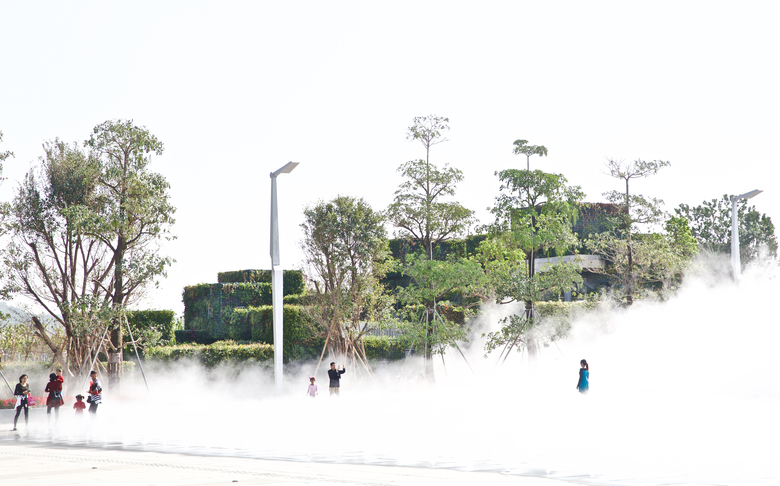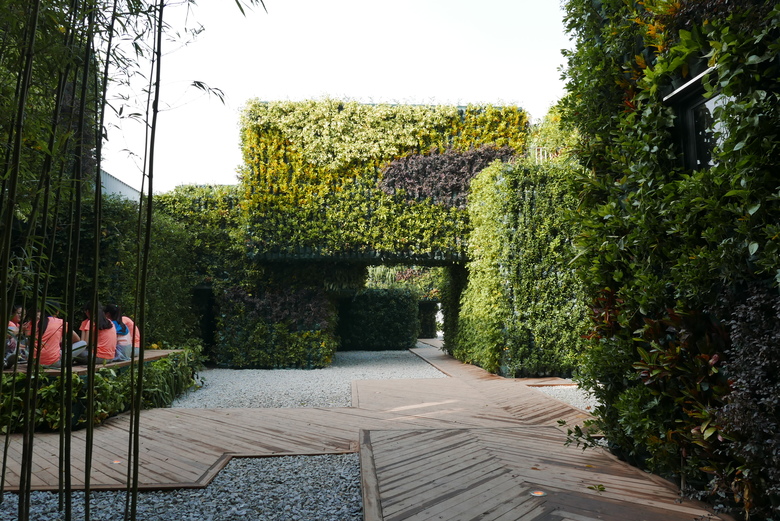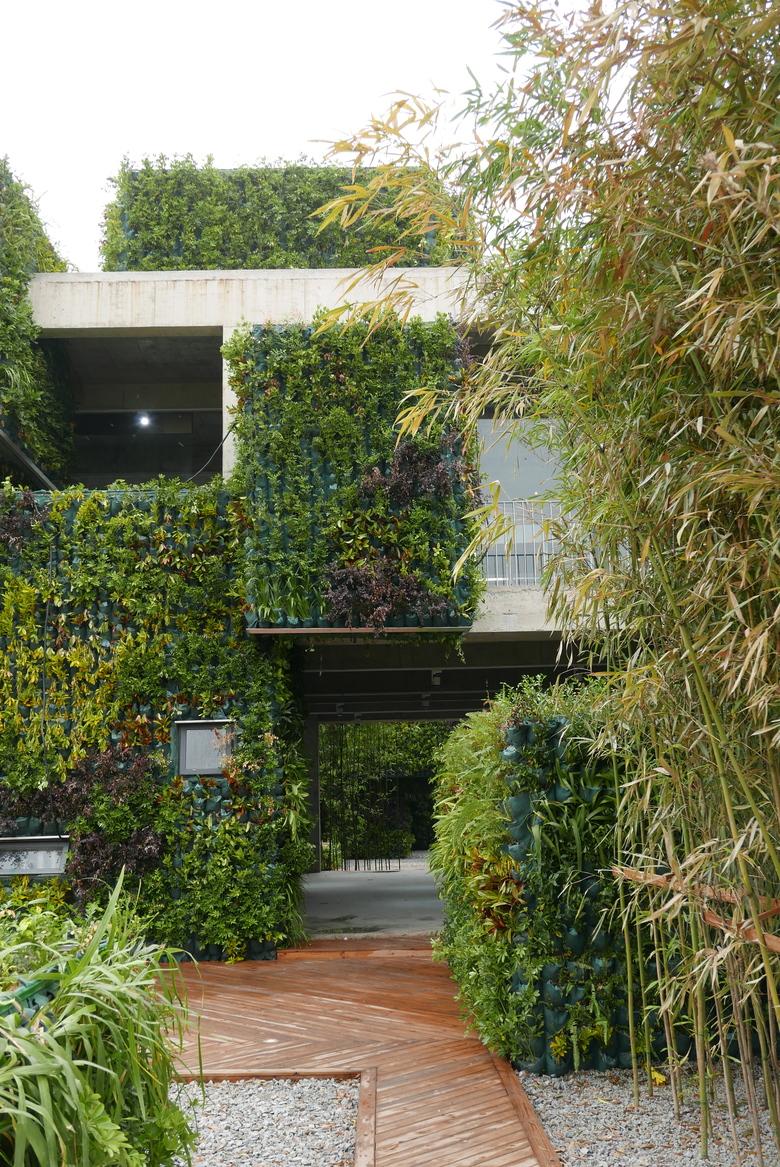Yi Garden II,Quanzhou National Park Installation
1. the use of uselessness
The use of uselessness is a traditional concept of Chinese philosophy, which means to attach new content and meaning to ordinary worthless things. Our design is based on an abandoned concrete frame, to expand and extend along with it, creating an unique experience of space arts.
2. garden culture
Our concept interprets the experience of rockery in Chinese garden, visitors can walk through green rockery and rest under the sunshade. It is not a repetition of the form of rockery, but a capture of spatial experience of traditional Chinese garden. Using green plants instead of rocks, with more natural.
3. natural climate
The project locates at tropical area, the complicated and well-arranged space provides the visitors a rich experience and lots of shade. The open space extends indoor area to outdoor, where people can have tea and chat.
4. uncertainty
The simple and flexible way of construction gives the structure the possibility of "growing". The green plants give it vitality all year round. It can be an ecological experimental base, a place where children can get close and explore nature.
Our design is between architecture and structure, expressing the spirit of traditional Chinese art.
- 年
- 2015





